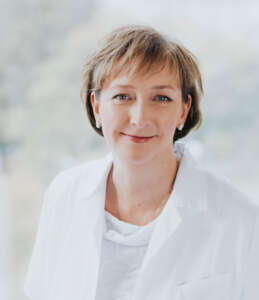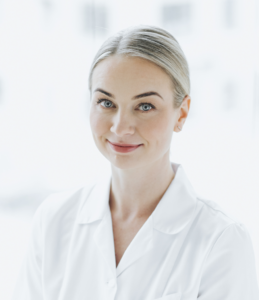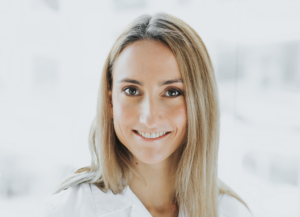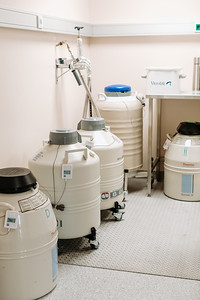Women’s biological clocks tick somewhat faster than men. Therefore, it is important to know at what point having biological offspring is no longer possible. Fortunately, there are good-hearted healthy young women who have decided to donate their eggs to help families who otherwise could not have children.
Next Fertility Nordic’s infertility doctors Dr. Ailen Aluri , Dr. Kristiina Piirisild and Dr. Helen Liis talk about in which cases donor eggs are needed, how to select egg donors and what pregnancy outcomes look like for recipients.

When does a woman’s fertility start to decline?
A woman’s fertility starts to decline gradually after the age of 30. After the age of 35 a woman’s fertility decreases much faster.
In which cases could donor eggs help?
The need to use donor eggs usually arises for the following reasons:
- The woman’s own egg supply has dropped significantly
- The woman has premature ovarian failure (POF)
- Oocyte quality is low due to endometriosis
- Repeat failure after IVF treatments
- For women over the age of 43, who do not have previously frozen eggs

How are egg donors recruited?
Next Fertility Nordic Clinic has an active donation program. Our egg donors are usually 20-31 years old, are physically and mentally healthy and have passed a thorough screening criteria.
Dr. Aluri: For the egg donor we do a thorough health survey and evaluate their mental health condition. Of course, the donors are also examined on lifestyles habits and if hereditary diseases occur in their family.
Dr. Piirisild: At the first appointment, we explain the collection procedure to donors and talk about the possible risks, we do gynecological examination and ultrasound. Anti-muller hormone (AMH) levels are checked to help assess a woman’s egg reserve. We also test for any infectious and genetic diseases (karyotype and carrier testing).
Dr. Aluri: Once the screening shows the donor is healthy and suitable to become an egg donor, then we start the preparation of controlled ovarian stimulation.

What is the difference between fresh and frozen on donor eggs?
Next Fertility Nordic Clinic uses both fresh and frozen donor eggs . We have our own biobank tanks where the frozen donor eggs are stored.
Dr. Liis: With frozen donor eggs there is more flexibility since there is no need to synchronize the donor and patient cycles. In some cases, it can be a little complicated especially for those patients that are travelling for treatment.
Dr. Aluri: Coordinating an IVF procedure with fresh donor eggs can take a little longer (average 2-3 months) because a donor is recruited to donate for a specific patient. This means it is necessary to schedule the menstrual cycle of both the patient and the donor to occur at the same time. There are more donors to choose from with the eggs that have already been frozen, and the treatment plan can be organized within 1-2 months. However, as oocytes are fragile cells, not all frozen eggs will survive the thawing or insemination process. For this reason, we recommend using a minimum of 6 eggs. Using more than 6 eggs will help improve the chances of success.
What is the preparatory treatment for a woman in need of donor eggs?
Dr Piirisild: A woman in need of donor eggs does not need to stimulate her own ovaries but needs to prepare her uterine lining (endometrium). Uterine preparation is usually done with hormone pills and vaginal medications.
Dr. Aluri: In general, a woman receives both estrogen and progesterone preparations for uterine preparation.

Dr. Liis: Before the embryo is transplanted, we also perform tests on the receptivity of the uterine lining at the request of a woman or if clinically necessary. The period during which a woman’s uterus is most susceptible to receive an embryo may vary between individuals. We offer both the BeReady as well as the ERA test . which involves taking an endometrial biopsy around the time of a standard transfer in a mock medicated cycle. The tests look at the expression of genes, to show the optimal window of implantation. The result allows the embryo transfer procedure to be scheduled when the conditions in the uterus are most favorable.
What are Next Fertility Nordic Clinic results with donor eggs?
When using donor eggs, the likelihood of getting pregnant via artificial insemination is much higher because the donors are much younger and likely have high quality eggs. Next Fertility Nordic Clinic has an average of 70% clinical pregnancy rate with donor eggs. The age of the recipient, the uterine susceptibility and quality of sperm used for fertilization also plays a role in the outcome of treatments using donor eggs.


